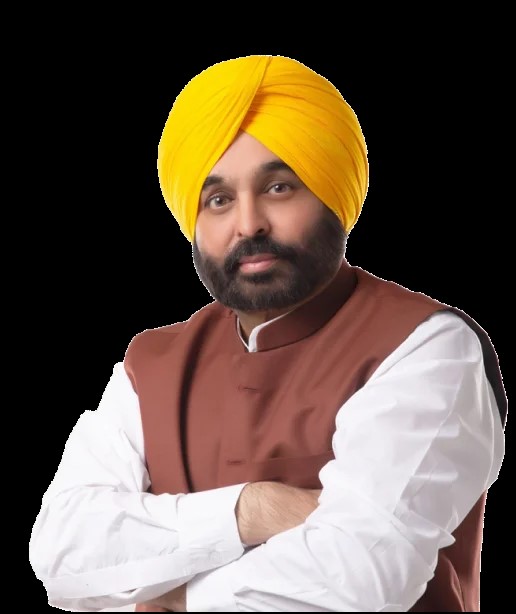 Punjab Chief Minister Bhagwant Mann entered politics as a breath of fresh air—an outsider with mass appeal, a former comedian who promised to clean up the system and bring governance closer to the people. However, over time, many observers and citizens alike have begun to question whether Mann has brought the seriousness and maturity the role demands. His casual tone in public addresses, frequent political U-turns, and repeated threats toward his opponents have raised concerns about his leadership style, priorities, and approach to governance.
Punjab Chief Minister Bhagwant Mann entered politics as a breath of fresh air—an outsider with mass appeal, a former comedian who promised to clean up the system and bring governance closer to the people. However, over time, many observers and citizens alike have begun to question whether Mann has brought the seriousness and maturity the role demands. His casual tone in public addresses, frequent political U-turns, and repeated threats toward his opponents have raised concerns about his leadership style, priorities, and approach to governance.
One of the most commonly raised concerns is Mann’s communication style. Whether addressing the media, speaking at public events, or appearing in the Punjab Assembly, the Chief Minister often adopts a light-hearted or overly casual tone. While this may have served him well during his days in stand-up comedy and early political rallies, many believe it is ill-suited for the office of a Chief Minister. Complex issues—like unemployment, drug addiction, education reforms, or public safety—require clear, well-thought-out communication backed by facts, data, and a roadmap. When the state is grappling with crises, including environmental disasters or law-and-order challenges, citizens expect a leader who speaks with authority, clarity, and seriousness. Unfortunately, Mann’s tone often undermines the gravity of the issues at hand.
The controversy surrounding a recent flood relief event in Ajnala only added fuel to this fire. According to several reports, local farmers—arguably the backbone of Punjab—were not allowed to participate in the event. Whether it was a security measure or a political decision, the optics were deeply problematic. At a time when farmers are still struggling with the aftermath of flooding, crop damage, and economic hardship, excluding them from a relief initiative is both insensitive and politically short-sighted. Mann, who came to power with the overwhelming support of rural voters and farmer families, seems to be drifting away from the very people who trusted him to deliver real change.
Equally troubling is his tendency to frequently reverse major decisions. From policy shifts to changes in administrative appointments, Mann’s government has shown signs of inconsistency and poor planning. These U-turns create confusion, weaken public trust, and suggest a lack of due diligence in the decision-making process. Governance is not trial and error—it requires foresight, expertise, and an understanding of the long-term consequences of policy decisions. A government that keeps changing course without explanation loses both credibility and efficiency.
Another issue is Mann’s obsession with his political opponents. In almost every major speech or press conference, he accuses previous leaders of corruption and promises to send them to jail. While holding wrongdoers accountable is necessary and welcomed, the constant public threats come off more as political theatre than actual legal action. If the government has solid evidence of corruption or wrongdoing, it should quietly pursue justice through the courts and relevant agencies—not use the threat of jail time as a campaign slogan. The justice system must remain above politics, and it is dangerous for any elected leader to make it appear otherwise.
Mann’s supporters argue that he remains a relatable figure who speaks the language of ordinary Punjabis and stays connected to the grassroots. They claim that his informality is refreshing and that his aggressive stance against corruption is a necessary break from Punjab’s political past. However, critics point out that slogans and soundbites are no substitute for governance. Populist language may win elections, but running a state requires competence, coordination, and discipline. There is a growing sense that the Bhagwant Mann government lacks the administrative seriousness needed to tackle Punjab’s complex problems.
In conclusion, Bhagwant Mann’s leadership style, once hailed as revolutionary, is increasingly being seen as performative and erratic. His failure to speak seriously in times of crisis, the exclusion of key stakeholders like farmers from important events, his inconsistent policy decisions, and his aggressive—but largely unfulfilled—promises against political rivals paint the picture of a leader more focused on headlines than solutions. Punjab deserves better—not just bold words, but thoughtful, transparent, and consistent governance. The people are watching, and so is history.